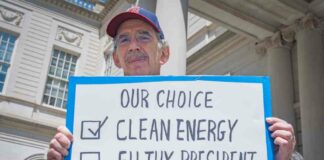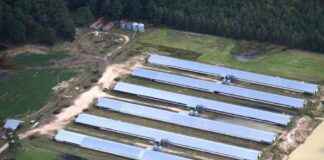Exxon’s $8.6 Billion Plastics Plant Proposal Sparks Environmental Concerns in Texas
Residents of Point Comfort, Texas, were taken aback when rumors of Exxon’s plans to construct an $8.6 billion plastics manufacturing plant in their community started circulating. Diane Wilson, a local activist who had spent years combating pollution from another petrochemical plant, was particularly alarmed by the news. Having fought legal battles against Formosa, the previous plant’s owner, Wilson was disheartened by the prospect of Exxon building its facility across from the existing factory, potentially threatening the waterways she had worked tirelessly to protect.
The proposed project, known as the Coastal Plain Project, involves constructing a steam cracker facility that utilizes oil and natural gas to produce ethylene and propylene, essential components of plastic production. However, the environmental impact of such operations cannot be overlooked. Steam crackers not only emit climate-altering pollutants but also release hazardous chemicals like ammonia, benzene, toluene, and methanol into the environment.
Environmental Impact and Community Concerns
Alexandra Shaykevich, a research manager at the Environmental Integrity Project, expressed reservations about the lack of transparency surrounding Exxon’s proposal. With critical information redacted from the application and no official public announcement from the company, concerns linger about the potential repercussions of the project on the local ecosystem and residents.
Point Comfort, already home to a nitrile factory, a plastics facility, and a Superfund site, faces the looming presence of another industrial entity in its midst. The disproportionate placement of such facilities near marginalized communities raises environmental justice concerns, as highlighted by a U.S. Environmental Protection Agency mapping tool revealing demographic disparities among residents. Wilson’s fears of Point Comfort becoming a “sacrifice zone” echo the sentiments of many who worry about the long-term implications of unchecked industrial expansion in their backyard.
Economic Incentives and Industry Trends
Exxon’s pursuit of tax subsidies under the state’s Jobs, Energy, Technology, and Innovation Act has stirred debates about the implications of offering financial incentives to a profitable corporation. While the company touts the potential job creation and economic boost expected from the plant’s operation, critics like Robin Schneider from the Texas Campaign for the Environment question the rationale behind subsidizing a billion-dollar enterprise with taxpayer funds.
Financial analysts caution against further investments in plastic production, citing oversupply concerns, global pressure to reduce emissions, and growing opposition to petrochemical expansion. Despite the Trump administration’s leniency towards polluting industries, experts believe the petrochemical sector is facing a downward trajectory, marked by diminishing returns and environmental challenges.
In the face of Exxon’s ambitious proposal, Wilson’s resolve to protect her community mirrors her past battles against industrial polluters. Reflecting on her past struggles with Formosa and the collective efforts to hold polluters accountable, she remains steadfast in her commitment to thwart Exxon’s plans for a new plant in Calhoun County. As she gears up for another environmental showdown, Wilson’s unwavering dedication serves as a beacon of hope for those fighting to preserve the natural beauty and integrity of their surroundings.
Exxon’s potential entry into Point Comfort represents a pivotal moment for the local community and environmental advocates alike. The outcome of this unfolding saga will not only shape the future of this small coastal town but also resonate with broader discussions on sustainability, corporate responsibility, and environmental justice. As stakeholders grapple with competing interests and ideals, the fate of Point Comfort hangs in the balance, awaiting a resolution that will impact generations to come.














